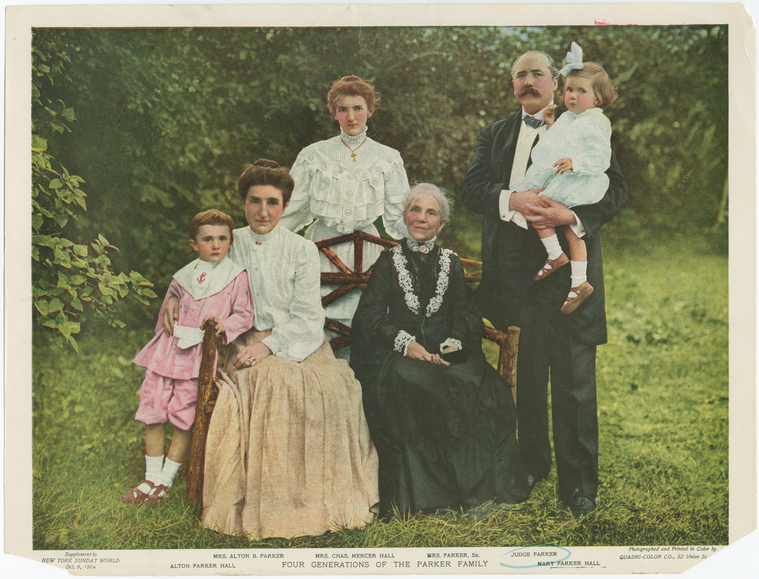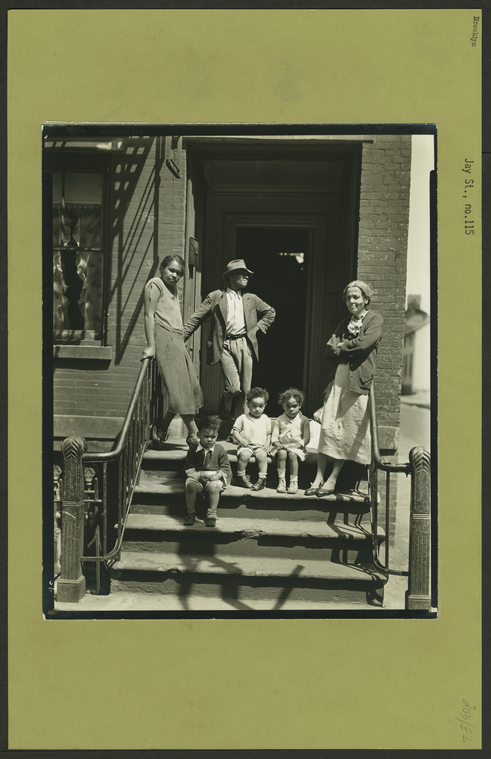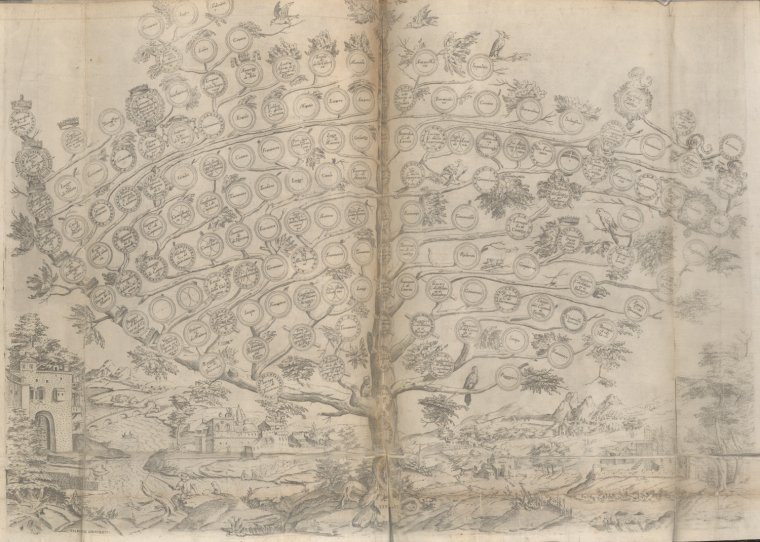Genealogy Research Tips: Breaking Through Brick Walls and Getting Past Dead Ends
Genealogy research may now be among America’s favorite hobbies, but it certainly is not the least frustrating. Stamp and coin collecting may start to look more attractive after you spend a few days combing through Ancestry Library Edition and can’t find any new records to help add details to your family tree. But don’t despair for too long, the following tips and tricks may help you get past the dreaded brick wall in genealogy research.
I would be remiss if I left out some basic but absolutely necessary steps:
- Don’t give up! You will be able to find more information with patience and diligence than without it.
- Organize your research:
- Chart your family tree.
- Make duplicates of primary documents.
- Create folders or binders for different branches of your family tree.
- Create a database on your computer just for your genealogical research.
- Create a research log to help you remember what you searched and what resources you used.
- Review your previous research.
- Verify your information with primary documents.
- Cite the source for each of your documents — including what type of document it is and where you obtained it.
- Analyze your records both separately and as a group. Often when records are gathered over a period of time, new answers, perspectives or clues can be found.
- Sort out records that contradict each other, but don’t discard them. Make note of contradictions and see if you can determine why there is conflicting information.
- Look at other case studies to find similar cases to your family research. The trials of others often will give you clues for how to proceed in your family’s cases.
- Share your information with other members of your family. They may have leads for you based on the research you have already done, but the information will need to be organized for someone else to understand it.
- Remember that genealogy research is a lot like detective work. You are using clues to unlock a larger story. You will occasionally follow false leads and have to retrace your steps and you may have long intervals before another promising lead develops. Embrace your role as a sleuth!
After you have completed these basic steps, you may find that you still have a brick wall in the way of your research. Here are some of the next steps towards a genealogical breakthrough:
- Do not rely on internet resources alone. There are many, many documents that are not found in popular databases like Ancestry. That being said though, Ancestry continues to add new genealogical records regularly so you should always check for new information every few months.
- Read how-to guides — they are extraordinarily useful. You may find some information without any training at all but eventually you will need to learn more about genealogy research as a field. Some recommended resources:
- Family History 101
- The Complete Beginner's Guide to Genealogy, the Internet, and Your Genealogy Computer Program
- Family History for the Older and Wiser
- The Genealogist's Companion and Sourcebook
- Secrets of Tracing Your Ancestors
- How To Do Everything: Genealogy
- Tracing your Family History: The Complete Guide to Locating Your Ancestors and Finding Out Where You Came From
- The Weekend Genealogist: Timesaving Techniques for Effective Research
- Consult some of the best references. There is a reason that these books are some of the most heavily used by visitors to the Milstein Division — they organize invaluable information about genealogical research and will often open a path for you after you’ve hit the brick wall with internet resources:
- Visit multiple places for your research.
- E.g. In New York City, many people will need to research here at the NYPL Milstein Division and also visit the NYC Municipal Archives, the National Archives at NYC, the New York Historical Society and sometimes also a Family History Center.
- We have a Conducting Research guide and a FAQ for the Milstein Division and many other archives and libraries do too. Browse their websites before your visits.
- Create a research plan if you are traveling to do research away from home. This will help you budget your limited time.
- E.g. In New York City, many people will need to research here at the NYPL Milstein Division and also visit the NYC Municipal Archives, the National Archives at NYC, the New York Historical Society and sometimes also a Family History Center.
- Use resources for specialized research. The following are examples of resources in our collections, but there are many more for many types of specialized research. Be sure to also check for genealogy groups that specialize, there are many!
- Women / Matrilineal research
- Native American
- African American
- Asian American
- Jewish
- Hispanic
- International Roots
- Branch out from census and vital records by looking at different types of records:
- Consult problem solving books for advanced problems:
- Search for genealogies already written about branches of your family. Your family does not have to be famous for someone to have compiled genealogical data about them.
- In the NYPL catalog, searching for “family” and the surname will yield good results, e.g. “Tilden family.”
- Local histories are also rich in genealogical information - they can cover small areas such as neighborhoods, e.g. Flushing, Queens or broad areas such as counties, e.g. Broome County.
- Local histories can also cover abstracts and lists to help in your research, e.g. Abstracts of wills, Carroll County, Maryland
- Search in WorldCat to see books that other libraries own.
- Search in Google Books to read books that have been digitized (some from our own collection!)
- Use HeritageQuest to access some digitized genealogies and local histories and to use PERSI to search genealogy periodicals for surnames and place names.
- Contextualize your research in the history of the corresponding era:
Lastly, there are always the pros.
- The Board for Certification of Genealogists and The Association of Professional Genealogists both offer a service to find a genealogist to help you in your research.
- You can also have a look at Professional Genealogy: A Manual for Researchers, Writers, Editors, Lecturers, and Librarians for some pro tips or if you are considering the profession for yourself.
Good luck in your research and remember that Patience and Fortitude are not only mascots of the library, but great qualities to maintain when researching.
Read E-Books with SimplyE
 With your library card, it's easier than ever to choose from more than 300,000 e-books on SimplyE, The New York Public Library's free e-reader app. Gain access to digital resources for all ages, including e-books, audiobooks, databases, and more.
With your library card, it's easier than ever to choose from more than 300,000 e-books on SimplyE, The New York Public Library's free e-reader app. Gain access to digital resources for all ages, including e-books, audiobooks, databases, and more.
If you don’t have an NYPL library card, New York State residents can apply for a digital card online or through SimplyE (available on the App Store or Google Play).
Need more help? Read our guide to using SimplyE.



Comments
Recording and telling stories for future generations
Submitted by Patricia Trutescu (not verified) on August 15, 2011 - 3:12pm
E-books
Submitted by Christine Blythe (not verified) on February 24, 2014 - 2:46pm
DICKERSON FAMILY
Submitted by mary Fitzgerald (not verified) on June 26, 2014 - 8:50am
Please email the division directly.
Submitted by Carmen Nigro on August 19, 2014 - 12:53pm
marriage and birth records in New York 1908-1914
Submitted by Mimi Denes (not verified) on August 23, 2014 - 1:44pm
our email is histref@nypl.org
Submitted by Guest (not verified) on November 3, 2014 - 9:42am
info on ggretgrandmother
Submitted by Fred L Williams (not verified) on August 14, 2015 - 8:26am
my gggggg(6th) great grandfather.
Submitted by KAREN LYLE (not verified) on October 13, 2015 - 6:25pm
Sylvanus Finch to Alpheus Finch
Submitted by Kay Lyn Chase (not verified) on October 29, 2017 - 2:24pm